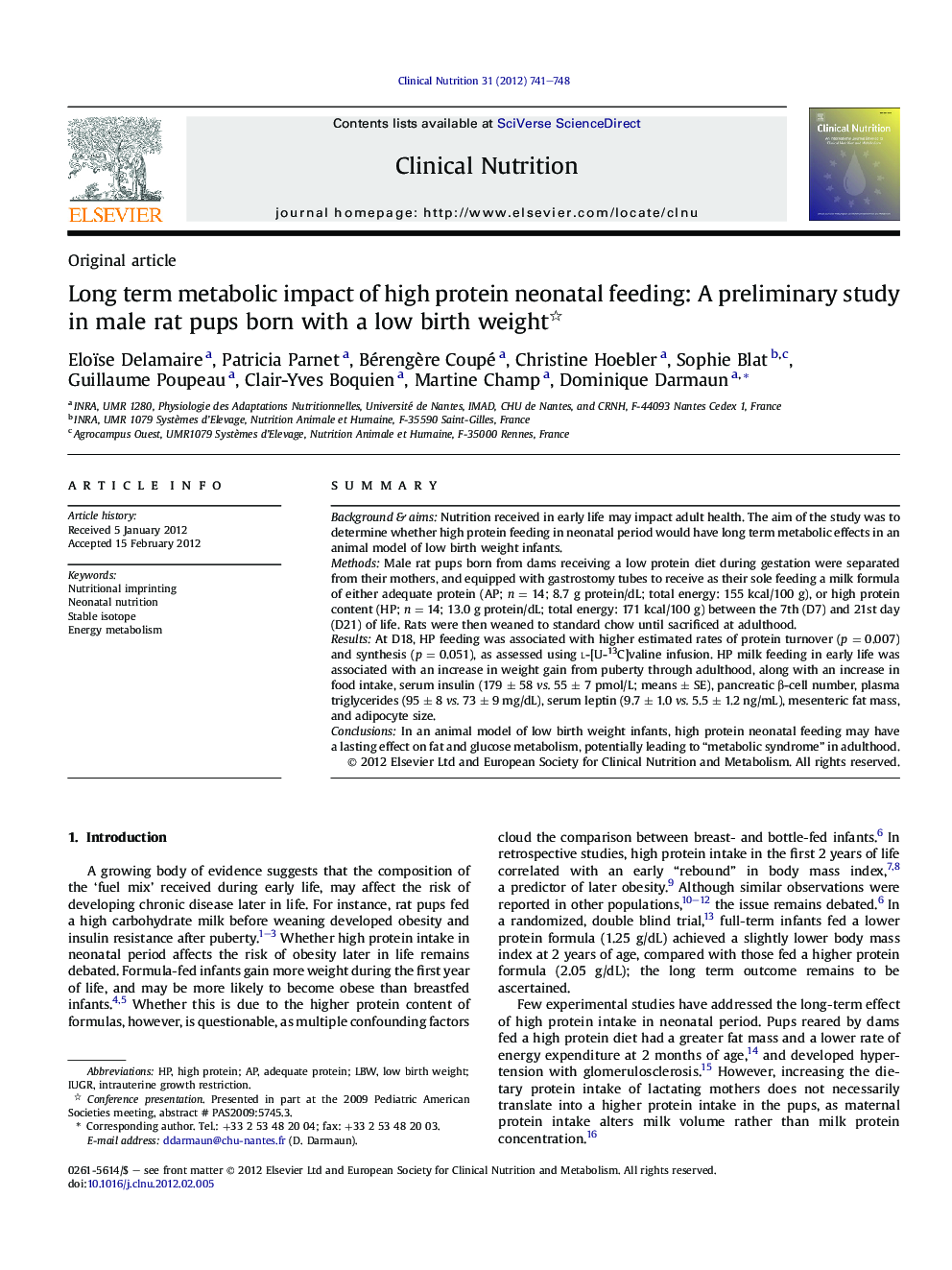| Article ID | Journal | Published Year | Pages | File Type |
|---|---|---|---|---|
| 2687149 | Clinical Nutrition | 2012 | 8 Pages |
SummaryBackground & aimsNutrition received in early life may impact adult health. The aim of the study was to determine whether high protein feeding in neonatal period would have long term metabolic effects in an animal model of low birth weight infants.MethodsMale rat pups born from dams receiving a low protein diet during gestation were separated from their mothers, and equipped with gastrostomy tubes to receive as their sole feeding a milk formula of either adequate protein (AP; n = 14; 8.7 g protein/dL; total energy: 155 kcal/100 g), or high protein content (HP; n = 14; 13.0 g protein/dL; total energy: 171 kcal/100 g) between the 7th (D7) and 21st day (D21) of life. Rats were then weaned to standard chow until sacrificed at adulthood.ResultsAt D18, HP feeding was associated with higher estimated rates of protein turnover (p = 0.007) and synthesis (p = 0.051), as assessed using l-[U-13C]valine infusion. HP milk feeding in early life was associated with an increase in weight gain from puberty through adulthood, along with an increase in food intake, serum insulin (179 ± 58 vs. 55 ± 7 pmol/L; means ± SE), pancreatic β-cell number, plasma triglycerides (95 ± 8 vs. 73 ± 9 mg/dL), serum leptin (9.7 ± 1.0 vs. 5.5 ± 1.2 ng/mL), mesenteric fat mass, and adipocyte size.ConclusionsIn an animal model of low birth weight infants, high protein neonatal feeding may have a lasting effect on fat and glucose metabolism, potentially leading to “metabolic syndrome” in adulthood.
